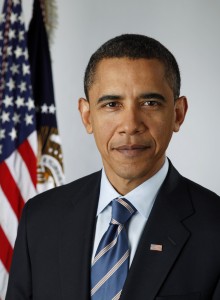 In a long and fascinating piece on President Obama’s views on foreign policy, The Atlantic’s Jeffrey Goldberg relays the president’s thinking on a range of global issues, gleaned from multiple and extended interviews.
In a long and fascinating piece on President Obama’s views on foreign policy, The Atlantic’s Jeffrey Goldberg relays the president’s thinking on a range of global issues, gleaned from multiple and extended interviews.
While the Middle East is much of the focus of the article, the president reveals his real concerns for the safety of the United States:
“Isis is not an existential threat to the United States,” he told me in one of these conversations. “Climate change is a potential existential threat to the entire world if we don’t do something about it.” Obama explained that climate change worries him in particular because “it is a political problem perfectly designed to repel government intervention. It involves every single country, and it is a comparatively slow-moving emergency, so there is always something seemingly more urgent on the agenda.”
And it’s also dominating his thinking about the transition to the next president:
In a conversation at the end of January, I asked the president to describe for me the threats he worries about most as he prepares, in the coming months, to hand off power to his successor.
“As I survey the next 20 years, climate change worries me profoundly because of the effects that it has on all the other problems that we face,” he said. “If you start seeing more severe drought; more significant famine; more displacement from the Indian subcontinent and coastal regions in Africa and Asia; the continuing problems of scarcity, refugees, poverty, disease—this makes every other problem we’ve got worse. That’s above and beyond just the existential issues of a planet that starts getting into a bad feedback loop.”
It’s reassuring that the president personally is so focused on climate change. To my mind, there is no greater issue facing humanity. Of course, for any single individual, there may be more important concerns: the Syrian refugee, the low-income person with health troubles, the migrant worker.
But climate change supersedes all these issues on a global scale, with the following potential consequences:
- Economic — the cost of relocating major American cities from inundated coasts or drought-stricken regions will be enormous. Probably not fatal to the U.S. economy, but likely to be deeply crippling.
- National security — the climate stressors on various nations, as we saw in the Middle East with drought-fueled rising food prices that sparked the Arab Spring, could lead to instability, wars, and more refugees. We’re already getting a taste of what that may look like in Europe and the Middle East right now.
- Species survival — as the planet blows past 2 degrees centigrade warming by the end of this century, with steeper temperature increases to come in the next, there’s a strong risk of global crop failure and further massive species die-off, leading to the risk of extinction for humans.
Of course, there are other planetary risks, like nuclear war and viruses/plagues. But those threats are likely to leave pockets of the planet (or percentages of people) unharmed, allowing life on Earth as we know it to continue.
In the long run, I believe life on Earth will survive, whether we’re here or not. In fact, a mass die-off now will probably provide a great opportunity for some other species, currently around us somewhere, to flourish and diversify, much as mammals did after the die-off of many dinosaur-era species.
But I’d rather have that future come much later, and keep the present arrangement for as long as we can. And at the very least, at least we have a president who shares these concerns, even as his political power — and boldness to tackle the issue when we had a better opportunity — has faded.
Leave a Reply
You must be logged in to post a comment.


